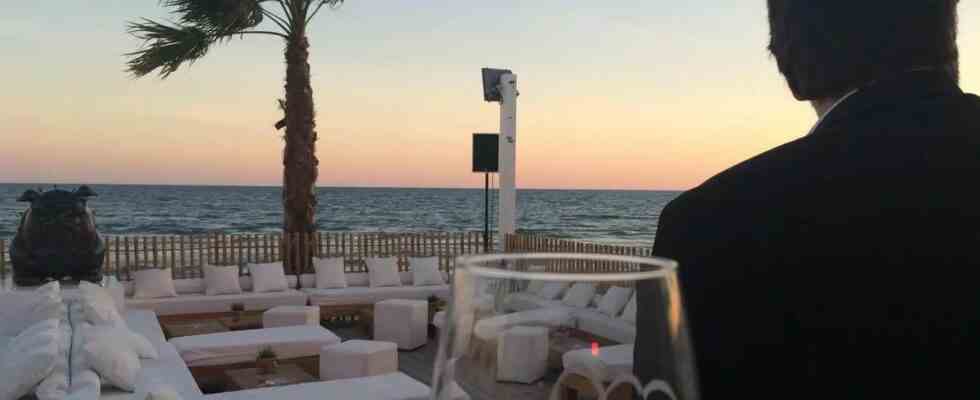On the Hérault coast, the bamboche is over. Or almost. A report from a special inspection mission, commissioned last spring by the former Prime Minister, Jean Castex, points to the breaches of the law caused by a good number of private beaches, these huts where we tan and where we party , summer, by the sea. These breaches of the regulations had already been noted by court decisions.
20 minutes was unable to obtain this precious document from the General Inspectorate for the Environment and Sustainable Development (Igedd), nor from the Ministry of Ecological Transition. But it was communicated to France Nature Environnement (FNE), a federation which brings together 9,000 environmental associations, and fiercely opposed to straw huts, who made it public. This report observes that “many catering establishments or bathing establishments have […] benefited from occupation concessions” on protected areas, with particularly sensitive biodiversity.
A difficult balance between economy and ecology
These occupations are illegal, the document recalls. “The straw huts were installed illegally in the years 1995-2005. The State did not oppose it (and still collects royalties and taxes) and the municipalities are “remunerated” […]in the form of royalties. […] Controls have remained rare for a very long time, even if the administrative measures have been very restrictive for a few years: closing of nightclubs, reduction in the number of establishments, etc. “In 2019, the ex-prefect of Hérault, Pierre Pouëssel, had somewhat refreshed the atmosphere, by requiring private beaches that it does not exceed 80 decibels, under penalty of sanctions. It was the end, or almost, of open-air nightclubs, which filled up every evening in the summer, near Montpellier.
However, the non-renewal of the concessions of these huts, in the coming years, would be likely, continues this ministerial report, “to weaken an important economic activity and significantly burden the finances of the municipalities concerned”. So how do we do ? The audit proposes, of the 81 catering and refreshment lots present on the Hérault coast, to maintain part of them, while ensuring that the impact on the environment is controlled, to move another part to spaces that are not protected, and to delete others. All in “a peaceful transition”.
“It is time for the coastline to be more exemplary”
FNE and the municipalities concerned do not have the same reading of the report. Simon Popy, president of the environmental federation in Languedoc-Roussillon, is “largely satisfied”, because this audit “clearly points out the inconsistencies of the defenders of illegal straw huts”. “We will be careful that this report does not lead to an “à la carte” or complacent application of the Coastline law, so that all of the remarkable areas of the coast are protected. […] It is time for the Hérault coast to be more exemplary in respecting the Coastal Law”, indicates the regional president of the FNE.
For their part, in a joint press release, the mayors of Agde, Mauguio-Carnon and La Grande-Motte, who regret having learned that this report had been made public by FNE without them having received it themselves , are however delighted that it “fully confirms the importance of huts and their usefulness within the framework of a reasoned management of beaches and advocates their maintenance in almost all cases”. “He does not conclude in any way that the straw huts are illegal, but that they must be adapted” in the light of the law, note the elected officials.
“A pillar of our attractiveness”
The three mayors recall, moreover, that the straw huts are essential for the local economy. They “provide many local jobs, they work together with the producers of the territory and in this embody a strong link in the short circuits”. Private beaches are also, they assure, “a pillar of our attractiveness”, and their role is “dominant in securing our beaches”.
Will we still be celebrating, in ten or twenty years, on the sands of Hérault? Between the defenders of the environment on the one hand, and the owners of private beaches and the municipalities concerned on the other, the debate promises to be particularly heated.

